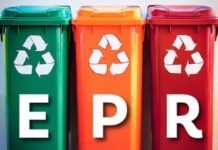Some of the country’s leading producer responsibility organizations (PRO) are of the opinion that the proposed uniform EPR framework, which was floated by India’s Ministry of Environment, Forest and Climate Change, to curtail the problem of packaging waste, is vague and ineffective to solve the problems it highlights. The document rather than helping stakeholders in the interpretation of several terminologies and definitions of the PWM 2016 rules has added to their confusion and is not fulfilling the objective of creating guidelines.
“The document does not associate itself with ground reality for it attempts to bring in transparency in the EPR ecosystem by creating a whole new system without recognizing and incorporating efforts already made since notification of the PWM rules in 2016,” Snehal Jariwala, technical director, NEPRA Environmental Solutions said. As per Jariwala, it does not emphasize that to make EPR effective, the conclusive responsibility of EPR is on producers. “This document is trying to shift it to the government and confusing the readers further by bringing manufacturers of resins into the ambient of EPR, which is not in line with successful EPR systems from across the globe. Under the PWM Rules, 2016 manufacturer of resin has been defined as an entity separate from producers,” Jariwala said.
There are also loopholes in the models which would allow duplicity of plastic credits and also not assure the post-consumer plastic waste collection and recycling which is already a matter of worry. “Another important area where it is lacking is that it does not identify how irrespective of the models adopted, livelihoods of the waste pickers will be ensured? How the stakeholders have to ensure their inclusion and upliftment?” Jariwala added.
Hanumant Saraf, business head – Gemcorp Recycling and Technologies said, “The proposed framework covers only packaging materials, and neglects various single-use plastics like plastic pens, folders among others which are also thrown away in millions every month.”
Saraf said that the framework does not define EPR for various types of packaging plastics. So, there will be occurrences where organizations that have obligations for multi-layer packaging (MLPs) are fulfilling their obligations through PET bottles. “Since, it is most easy to collect and can be recycled into many commercially viable products. The framework should categorize the obligations as per the generated amount and type of plastics,” he said.
“Also, there is no clarity on the consumption of recycled products. If we want the mechanism to work effectively, it can’t function as a CSR activity. The involved stakeholders don’t see EPR as a commercially viable practice. As per the current economic theory, wastes like packaging is a negative externality outside the market. The government should introduce mandates which give waste an economic value hence the internalization of this externality becomes lucrative for companies. Currently, the producers see it as a charity or a liability, rather than a commercially fruitful business practice,” he further added.
The stakeholders say that the definition of PRO has to be well defined since everything in the EPR ecosystem revolves around them. Currently, many organizations and other competing industries are trying to mint money via registering themselves as PRO, without understanding the obligations or having the necessary infrastructure/competency.











